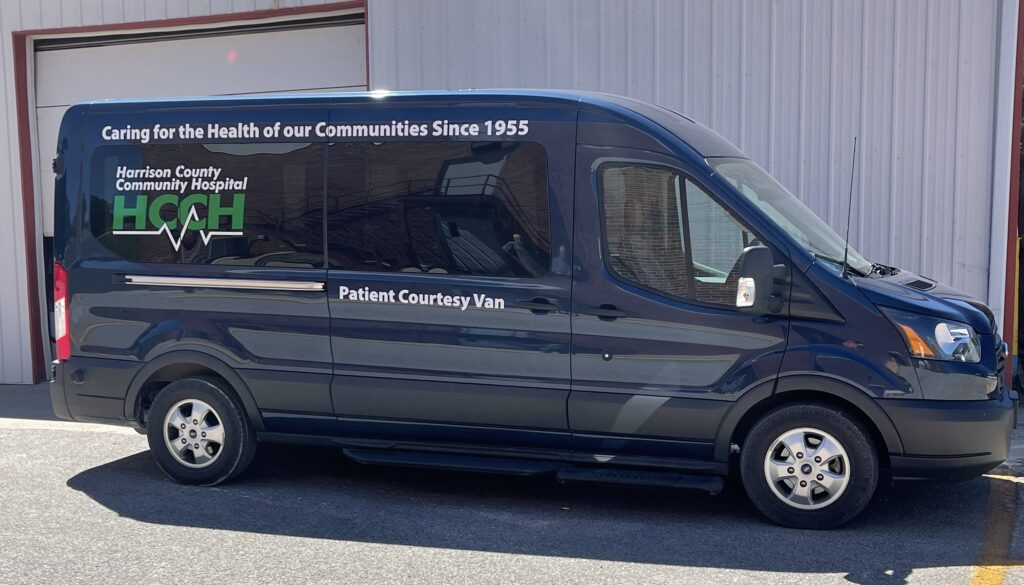
Keeping patients healthy in one of the larger counties in rural Missouri literally means going the extra mile for Harrison County Community Hospital District (HCCHD), which offers courtesy patient transportation to its main campus as well as two other clinical sites.
The service van, which is wheelchair accessible, provides patients a ride to medical appointments as well as to therapy sessions and group counseling. As patient locations are wide-ranging in the county, the driver sometimes will travel up to 60 miles to pick up one person. The van can hold up to five patients at a time. HCCHD’s van currently provides rides to an average of eight patients per day.
Last year, the van made nearly 7,000 round trips, traveling 28,000 miles to take patients to their appointments and back home again, said Abbe Ream, Director of Marketing at HCCHD. Travel also sometimes includes a stop at a pharmacy to fill a prescription before taking a person home.
The service is not a moneymaker for HCCHD but keeps patients regularly showing up for their appointments, which can decrease strain on the health care system and help avoid unnecessary admissions and/or readmissions to the hospital.
The most recent transportation van was purchased in 2017 by the hospital’s foundation. HCCHD budgets $85,000 each year for the service, which covers the driver’s pay, benefits, fuel, maintenance, and vehicle insurance. The cost is offset slightly through a grant they apply for each year from the Missouri Elderly and Handicapped Transportation Assistance Program. Plus, patients regularly attending their appointments means steady revenue for the hospital and its clinics.
The full-time driver schedules rides for the patients. Abbe said they found efficiencies in having just one person schedule rides throughout the 726 square-mile county. HCCHD also employs a part-time driver to fill in as needed.
The popularity of the service and health benefits to patients are invaluable, and relationships built between the driver and patients are sometimes as important as the trip itself.
For example, Abbe said one frequent rider who uses a wheelchair started canceling appointments. The driver, who already built a rapport with this person, encouraged him to continue his appointments, and he started going again.
Abbe said a rider’s interaction with the driver may also sometimes be that person’s main social interaction for the day. The driver also serves as an unofficial extra set of eyes on patients, which can lead to a person receiving help from family or additional services from HCCHD.
“Sometimes, our driver may notice a rider is off or not acting normal,” Abbe said. “The driver can notify our hospital or clinic staff and we can talk to the patient and/or get in touch with the family to find out what’s going on to help that person.”
